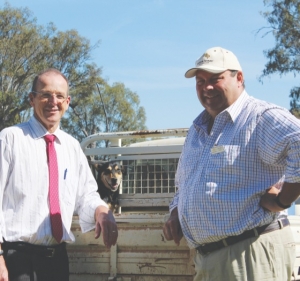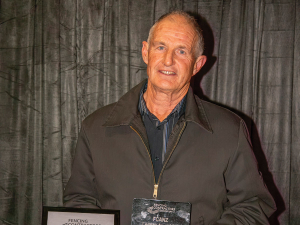The National Farmers' Federation (NFF) says it is looking to politicians to be clear on their policies, and commit to action for the agriculture sector.
NFF president Duncan Fraser says Australian agriculture needs to be a priority for all sides of Parliament in this election. The NFF will be looking for agriculture to be elevated in the policy debate between major parties.
"Now that we know the election date, we're looking for equal certainty in policy issues, so farmers can get on with their job. We encourage all political parties to consider how they can best serve a strong, vibrant agriculture sector.
"In the National Food Plan, The Asian Century White Paper and [recent] media comments by the Prime Minister, the Government has signalled that food, fibre and agriculture are a priority. Similarly the Coalition has indicated its commitment to the sector with agriculture as a key policy pillar. What farmers and the broader rural sector now need to see is the detail behind the rhetoric, so that they can make up their own minds about what the major parties and independents have to offer.
"Between now and September 7, major political parties will be judged by the NFF on their commitment to the agriculture sector and long-term policy vision. A scorecard system will provide an evaluation of the policies of each of the parties, available for farmers and anyone else interested in pursuing a strong vision for Australian agriculture."
The NFF has five key policy priorities:
• Growing Australian agriculture: reprioritising agriculture in the national agenda. Key actions required: a commitment to implement blueprint priorities and to increase agriculture's share of the federal budget.
• Investing in R&D: driving innovation and productivity through increased investment in agriculture R&D. Key action required: increasing total expenditure on R&D by 1% (of total national expenditure on R&D) by 2015.
• Increasing competitiveness and profitability: ensuring we are a globally competitive and our farmers remain profitable. Key actions required: reduce red tape by harmonisation of state/federal regulations; ensuring fair competition by delivering the balance of market power; and driving investment in infrastructure needed by farmers.
• Building a stronger workforce: encouraging greater uptake of agricultural careers and delivering improved labour solutions. Key actions required: embedding agriculture into the national curriculum and allowing individuals flexible agreements when taking jobs.
• Balancing agriculture and the environment: ensuring our natural resources can continue to be managed while also increasing agricultural production. Key actions required: ensuring infrastructure and other efficiency measures are in place prior to any water purchases in the Murray-Darling Basin; and helping farmers to improve preparedness and response to extreme climactic events including an overhaul of drought support measures.
"All sides of Government need to remember that the future of food, fibre and agriculture is dependent on policy decisions made today. These decisions are not just important for farmers but for the millions of Australians who eat, drink and wear what we grow every day," says Fraser.

















